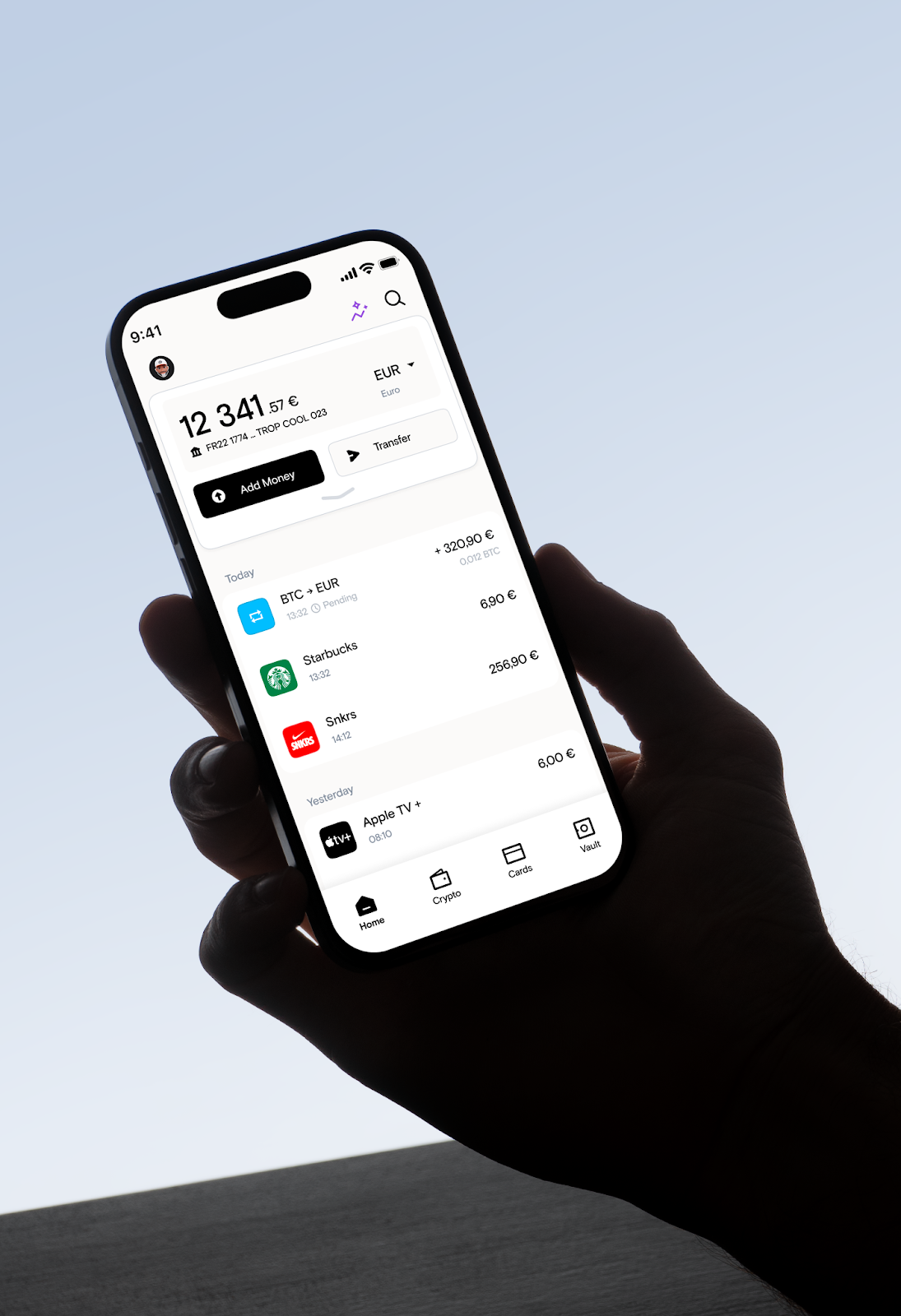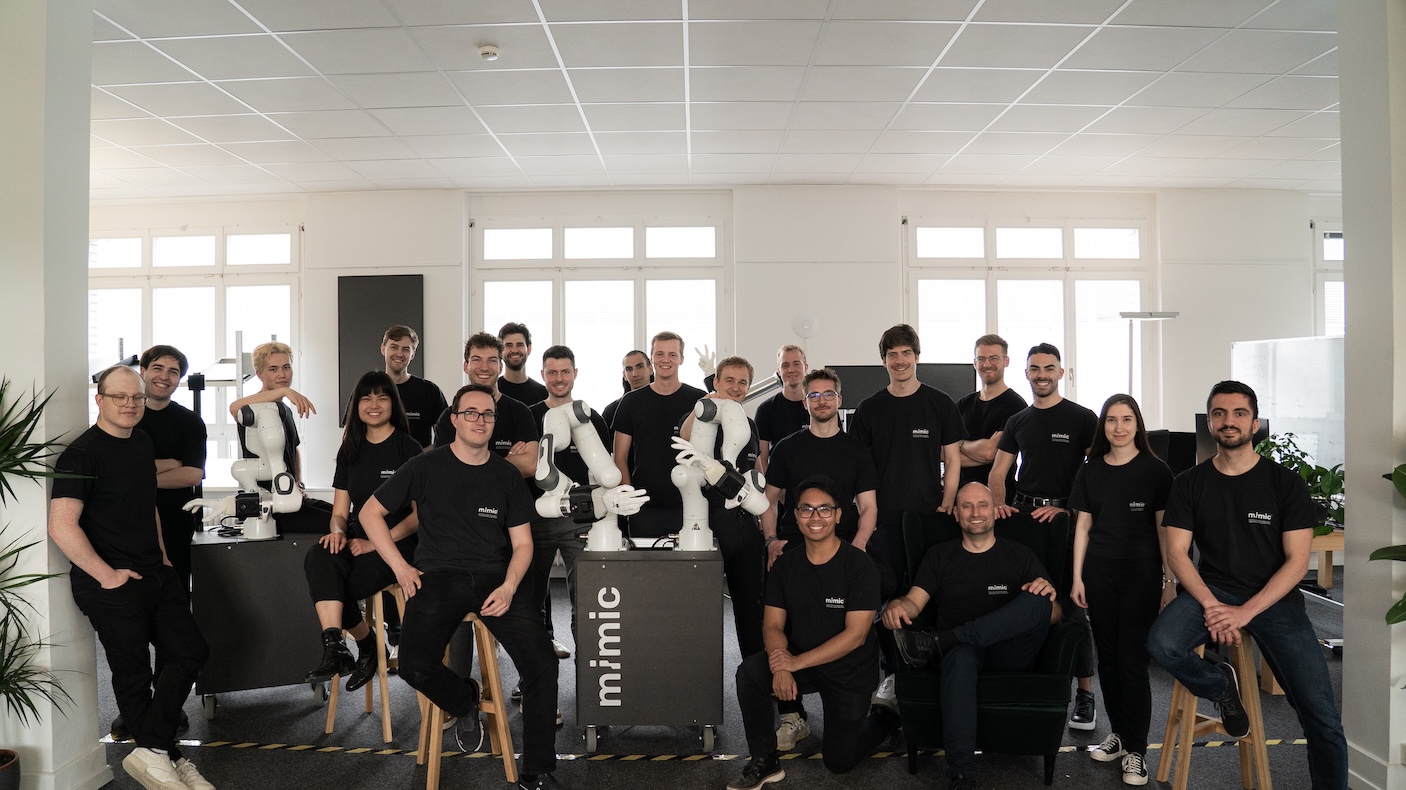The New Era of DeFi Banking: Why We Invested in Deblock
At Speedinvest, we’ve spent more than a decade backing founders who reimagine how money moves, from neobanks to payments interoperability in fragmented markets to digital investing and to the underlying infrastructure rails.
Suppose that the first generation of fintech digitized existing systems, and the second made them mobile and user-friendly. The third generation is about something far bigger: rebuilding finance from the ground up.
Deblock is that future in product form, i.e., the pathway to the world’s first fully licensed on‑chain bank account. Once we finally connected with the team, our conviction translated into a term sheet within a week and a close within a month.
From banking apps to programmable finance
Finance has evolved in three waves:
Gen 1: Traditional banks - closed systems built for branches, not code.
Gen 2: Neobanks- mobile‑first interfaces still running on legacy rails.
Gen 3: On‑chain platforms - open, programmable, user‑controlled finance.
Deblock is among the first real examples of Generation 3: a platform that integrates the compliance of banking, the UX of modern fintech, and the architecture of blockchain. In this model, saving, spending, investing, and borrowing become composable functions on an interoperable network.
What Deblock is building
Founded in 2022 by Jean Meyer, Aaron Beck, Adriana Restrepo, and Mario Eguiliuz Alebicto, Deblock merges the simplicity of a neobank with the power of decentralized infrastructure. As mentioned above, in this model of programmable finance, the users can store, move, and grow their money in one place. Under the hood, on‑chain rails power:
- Instant settlement and global transfers
- Transparent, verifiable self-custody
- Programmatic services like yield, lending, and FX, returning better margins (higher yields, cheaper rates) to the end user, as Deblock cuts out the intermediary
To a customer, it looks like a sleek finance app. To the industry, it’s a blueprint for how banking, payments, and investing will operate this decade.
We are proud to be leading a €30m Series A alongside Latitude (Phoenix Court), CommerzVentures, and existing backers Headline, Hoxton Ventures, Shaprs, and Chalfen Ventures.

Why we invested
Our conviction rests on three beliefs.
1) Infrastructure is shifting to programmable, interoperable rails
Assets, identities, and transactions are moving to open systems. The closed network of banks is giving way to an internet native financial layer where value moves transparently and near instantly. Deblock sits squarely at this transition, bringing the benefits of on-chain finance to mainstream consumers without requiring them to learn new mental models.
Most importantly, Deblock’s approach to security and identity recovery bridges the gap between usability and true self-custody. Users can always recover their keys through secure re-identification, which is a proprietary process flow built in-house. No one has ever lost access to their private keys for this reason, proving that convenience and control can coexist. This solves one of the biggest barriers to adoption and makes self-custody viable for the mainstream.
2) The best products abstract complexity to the non-native user
Consumers don’t want to think about seed phrases or smart contracts. They want money that is safe, available, and working harder. Deblock abstracts the crypto native mechanics while preserving user control. No wallet addresses, no gas fees, no arcane flows, just:
- Earn competitive yield on euros or digital assets
- Spend anywhere with a Visa card
- Invest or borrow against holdings
- Move funds globally in seconds
3) A breakthrough stack built for speed and scale
Deblock’s infrastructure is built in-house, from proprietary ramp rails to real-time settlement and compliance automation. Onboarding is among the fastest in Europe (we absolutely tested it out), with account opening and verification in seconds via facial recognition and qualified e-signature. Without going into the specifics, the team has built a product stack that takes the ethos of crypto-first architecture and combines it with enterprise-grade safeguards. The output of this work shows in the growth profile, the margins, and the reliability of the app with its loyal user base.

The team: speed with discipline
Speed matters when technology, regulation, and consumer behavior converge. Deblock’s founders have shipped at this tempo before. Jean and Mario sold their previous startup to Revolut; Aaron and Adriana served as Head of Payments and COO of Revolut Bank, respectively. At Revolut, they helped build Banking 2.0. At Deblock, they’re building Finance 3.0.
Crucially, that speed is matched by regulatory fluency. Deblock operates within a European framework, combining the passportable EMI license as well as France’s first-ever MiCA license supported by direct engagement from regulators and auditors. It’s the balance of velocity and responsibility that Europe’s next generation of financial platforms will require.

Built for Europe but designed for a borderless world
Every feature above is delivered within a regulated perimeter while leveraging open blockchain infrastructure. The platform feels familiar, but the underlying system is fundamentally superior in terms of settlement speed, transparency, and interoperability. As Deblock scales beyond France into Germany and across the EU, its foundation positions the company for sustainable, profitable growth.
“People don’t want to be their own bank. They want their bank to work like crypto.”
Jean Meyer, CEO, Deblock
That mindset captures where fintech is heading. We’re excited to partner with the Deblock team as they make finance as open and programmable as the internet.
If you’re building in programmable finance or want to join Deblock’s mission, our inbox is open.












.svg)
